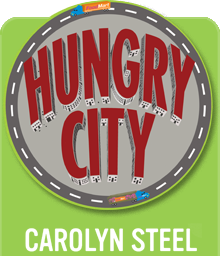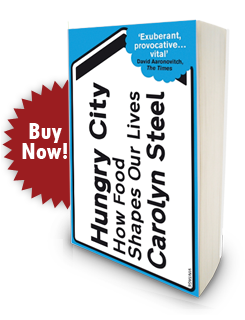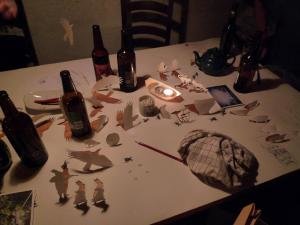COP15 – Dirt Cafe Sitopia
It seems a bit strange to be blogging about COP15 in the grip of the coldest winter in the northern hemisphere for decades, but, if anything, the fact that the big freeze has largely wiped the conference off the headlines has only increased the damaging consequences of what turned out to be a hugely disappointing summit. The fallout from Copenhagen has yet to be fully assessed, but, what is clear is that waiting for politicians to come to some sort of global consensus on the way forward is not, as they say in America, ‘going to get the job done’.
COP15 was ultimately a failure of vision: something few modern politicians are trained, or even expected, to possess, yet something of which we have rarely been in greater need. Fortunately, as my experience of Copenhagen proved, vision exists in abundance –it is just under the radar. For me, the greatest challenge over the coming months is to find ways of making it more visible.
I was in Copenhagen for my own event, ‘Dirt Café Sitopia’, organised together with Trine Hahnemann, chef to the Danish Parliament, and a team of collaborators (or ‘Dirties’) in Copenhagen, London and New York. The event was the latest iteration of the Dirt Café, a project started by Geoff Crook and Claire Hartten at Central St. Martins and about which I will be writing more in the coming months, but which consists, in essence, of a debate between six invited guests staged over a special meal. In this case two meals took place, in Copenhagen and New York, on the subject of sitopia (which, for those who haven’t read Hungry City, means ‘food place’).
The Copenhagen meal was held in a kolonihavehus, or allotment shed, in the suburbs of the city. The meal was cooked by Trine, and the guests included Kirsten Halsnæs, Principal Economist of the international research network on Development, Energy, and Climate Change, Thomas Harttung, whose company Aarstiderne, is the biggest organic box-scheme in the world, and whose farm in Northern Denmark is the subject of a project Green Carbon, which investigates the sequestering of carbon in farming practice. Maarten Hajer, Director of the Netherlands Environment Agency and Lene Anderson, a Danish philosopher, completed the table. Vandana Shiva, who was supposed to be joining us, was detained at the conference, but her absence didn’t spoil an amazing afternoon.
To describe the meal in detail would take as long as the meal itself, but much delicious (vegetarian) food was eaten, and the beautiful ‘landscape’ tablecloth, made by Maria Wedum, gradually came to life. The conversation ranged widely around food, cities, scale, public space, politics, and so on. A critical point was reached when Thomas spoke about his carbon neutral farm, a model he is developing that not only shows how we can feed the world organically, but create biomass and sequester carbon while we are doing it. At this, Kirsten offered to work with Thomas to bring his model to the attention of the IPCC, and those of us sitting around the table (and standing around it!) promised to do what we could to help. It was an amazing moment – a new connection forged between two people who had never met, and yet who, working together, could really make a difference.
Meeting and working with people like these gives me hope that we are not doomed to blow what may well be the most challenging decade in human history. Working together, we really can do anything. Creating the networks and frameworks that allow us to do so is our greatest challenge.











